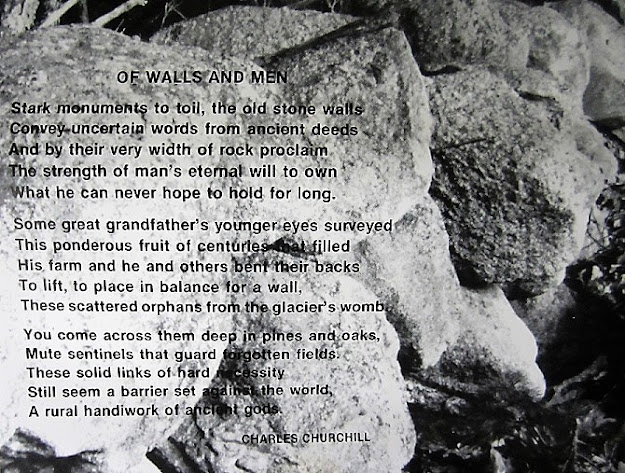One of those 2,355 residents of Parsonsfield counted in the 1820 census, the year in which Maine gained statehood, was Ichabod Churchill. Born in Newmarket, NH in 1764 he purchased this farm about 1797 and moved his family to Parsonsfield where he became a prosperous farmer.
He and his first wife, Elizabeth Doe, had six children (Nicholas, Betsey, John, Thomas, Mary and Nancy). His wife died in 1809 and he married Leah Allen in 1810. His third son, Thomas, continued on the farm after Ichabod’s death in 1855 and was the owner when this map was drawn. The arrow shows the location of the T. Churchill home at the top of a hill on what is now called North Road (Route 160). Though no longer owned by the Churchill family the impressive farm remains today, easily recognized by the large barn.
The December 26, 1885 issue of “The Oxford County Record”, a newspaper published at Kezar Falls, has a sketch of “Father Churchill”. Some 30 years after his death his memory lived on.
ANECDOTES OF FATHER CHURCHILL
________
Editor Record: Your Cornish correspondent asks for reminiscences of Father Churchill. I send a few which give an idea of the character of the man.
Ichabod Churchill came to Parsonsfield as early as 1798, and cleared and lived on the farm now owned by his grandson, Nathaniel. He was a pushing, prosperous farmer, kind and benevolent, and was noted for his peculiar religious opinions and practices. Believing himself under the special guidance of the Holy Spirit, he obeyed every impulse promptly, without consulting reason. Yet there was method in his vagaries.
Being at a Quarterly Meeting he, with several others, was invited out to dinner. One brother monopolized the time talking of himself and his good deeds. Suddenly Father Churchill fell upon his knees and cried out: “O Lord, take away brother G________’s pride and give him as much humility as he has got self-righteousness.
A rich man was sick unto death, Mr. Churchill visited him and prayed that the good Lord would forgive him without requiring him to restore four-fold what he had wrongfully taken, for said he, “Thou knowest it would make a very poor man of him, and he could not do it.”
In a neighboring town there was a bitter church quarrel, into which most of the members had been drawn. A meeting had been called to investigate matters. That day Mr. Churchill was hoeing in his field. He threw aside his hoe and without coat, vest, or a word of explanation, started for the place of meeting. Stopping in the entry he listened a while to the confused clashing of angry tongues within; then bursting the door he screamed: “Fire! Fire!” “Fire!” “Where?” was the inquiry that came from all. “Right here,” was his reply. “This room is full of hell-fire and if you don’t stop this quarrelling you will all be burnt up!” So saying he turned and left.
H.G.O. Smith
N. Parsonsfield, Dec. 16, ‘85
This rock-strewn view looking north on Churchill Hill toward Porter Village shows the ancestral homestead on the right at the top of the hill. A portion of the family cemetery where Ichabod is interred can be seen just below the house.
 Perhaps
it was this scene which prompted Ichabod’s great, great, great grandson Charles
C. Churchill (1927 - 2016) to write his poem “Of Walls and Men”.
Perhaps
it was this scene which prompted Ichabod’s great, great, great grandson Charles
C. Churchill (1927 - 2016) to write his poem “Of Walls and Men”.





No comments:
Post a Comment